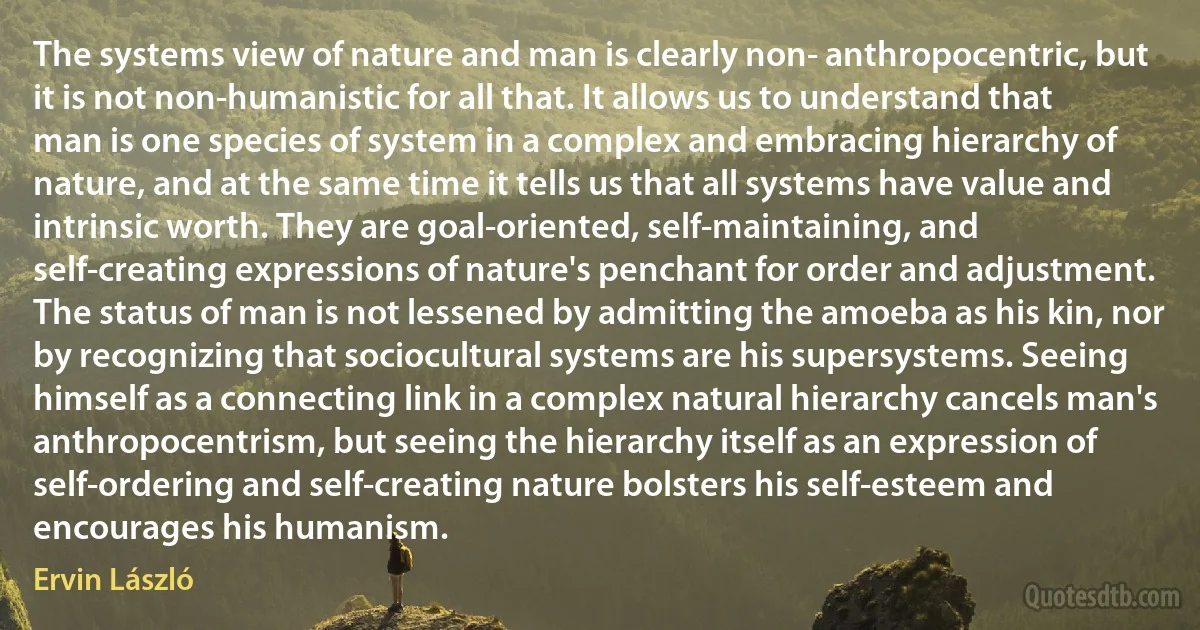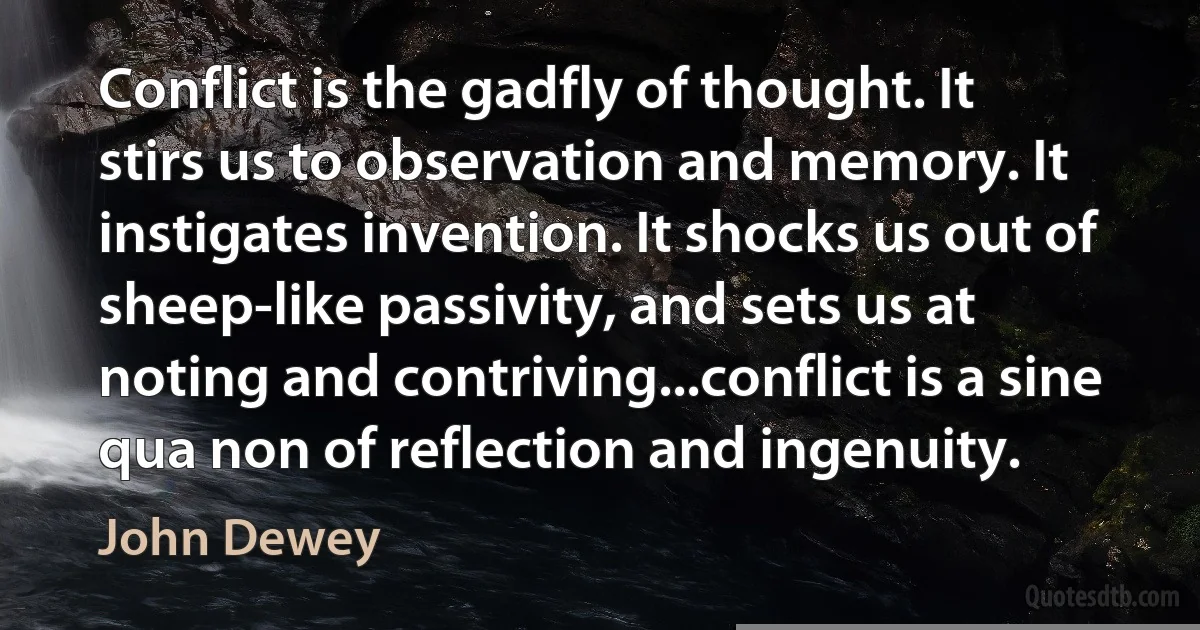Non Quotes
Donald Judd spoke of a 'neutral' surface, but what is meant? Neutrality must involve some relationship (to other ways of painting, thinking?) He would have to include these in his work to establish the neutrality of that surface. He also used 'non' or 'not' – expressive – this is an early problem – a negative solution or – expression of new sense – which can help one into – what one has not known. 'Neutral' expresses an intention.

Jasper Johns
He was decisive and wholehearted in everything he did, so intent non the task at hand that he never looked over his shoulder, even if his cloak got caught in a thorny bush. When he did turn to speak to somebody, he used to swing his entire body and dress him full face. When he shook hands, he was never the first to withdraw his own. He inspired such confidence that he was known as al-Amin, the Reliable One.

Karen Armstrong
Some people think that our planet is suffering from a fever. Now scientists are telling us that Mars is experiencing its own planetary warming: Martian warming. This has led some people, not necessarily scientists, to wonder if Mars and Jupiter, non signatories to the Kyoto Treaty, are actually inhabited by alien SUV-driving industrialists.

Fred Thompson
This society in which knowledge workers dominate is in danger of a new "class conflict" between the large minority of knowledge workers and the majority of workers who will make their livings through traditional ways, either by manual work... or by service work. The productivity of knowledge work - still abysmally low - will predictably become the economic challenge of the knowledge society. On it will depend the ability of the knowledge society to give decent incomes, and with them dignity and status, to non knowledge people.

Peter Drucker
Unlike the unfortunate practice or custom in Washington and in much of the country, the court is a model of civility. It's a wonderful place. Though there have been many contentious issues to come before the court during these initial years of my tenure, I have yet to hear the first unkind words exchanged among my colleagues. And quite frankly, I think that such civility is the sine qua non of conducting the affairs of the court and the business of the country.

Clarence Thomas
At the point at which the concept of différance, and the chain attached to it, intervenes, all the conceptual oppositions of metaphysics (signifier/signified; sensible/intelligible; writing/speech; passivity/activity; etc.)- to the extent that they ultimately refer to the presence of something present (for example, in the form of the identity of the subject who is present for all his operations, present beneath every accident or event, self-present in its "living speech," in its enunciations, in the present objects and acts of its language, etc.)- become non pertinent. They all amount, at one moment or another, to a subordination of the movement of différance in favor of the presence of a value or a meaning supposedly antecedent to différance, more original than it, exceeding and governing it in the last analysis. This is still the presence of what we called above the "transcendental signified.

Jacques Derrida
Though patriotism includes a sentimental, as it were a family, feeling for place, we can distinguish the ethical motive from the sentimental. At certain times in certain countries there has been a moral urgency to be patriotic when the actual or ideal policy of a man's nation has been a sine qua non for his conscience. But to-day patriotism, in so far as it means subordination to a specifically national policy, is superannuated. This war, we assume, is not being fought-not by most of us-for any merely national end; we are fighting it, primarily and clearly, for our lives, and secondarily, and, alas! vaguely, for a new international order.

Louis MacNeice
The Machine Age's commitment to cause and effect was the source of many dilemmas, including the one involving free will. At the turn of the century the American philosopher E. A. Singer, Jr., showed that science had, in effect, been cheating. It was using two different relationships but calling both cause and effect. He pointed out, for example, that acorns do not cause oaks because they are not sufficient, even though they are necessary, for oaks. An acorn thrown into the ocean, or planted in the desert or an Arctic ice cap does not yield an oak. To call the relationship between an acorn and an oak ‘probabilistic' or ‘non deterministic causality,' as many scientists did, was cheating because it is not possible to have a probability other than 1.0 associated with a cause; a cause completely determines its effect. Therefore, Singer chose to call this relationship ‘producer-product' and to differentiate it from cause-effect.

Russell L. Ackoff



